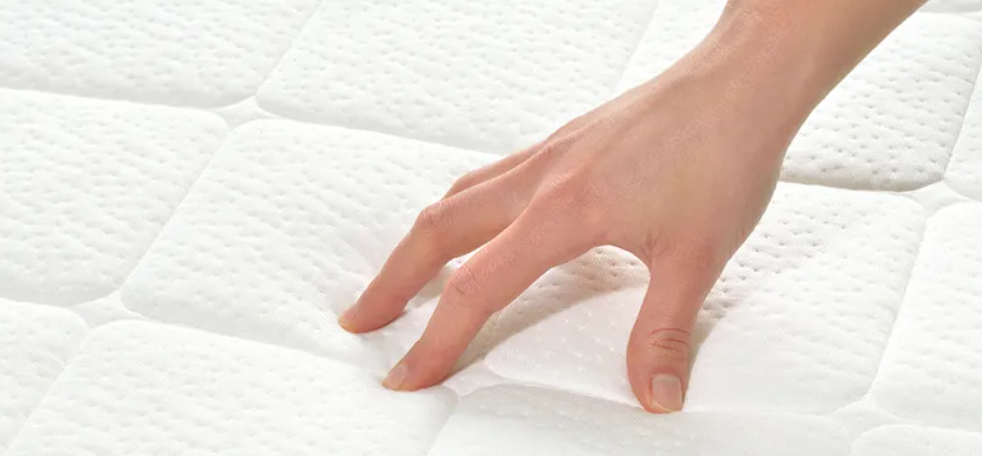The question of when to replace your mattress is dependent on several factors that contribute to both your physical health and overall comfort. Generally, experts recommend upgrading your mattress every seven to ten years. However, this timeline is not set in stone and can vary based on mattress quality, type, and how well it’s maintained.
For instance, higher-end mattresses made of durable materials may last beyond the ten-year mark, while those of lesser quality may need replacement sooner. Similarly, a mattress that is regularly rotated and cleaned can also extend its lifespan.The way you feel when you wake up in the morning is a major indicator of whether you should consider a mattress replacement.
If you often wake up feeling stiff, achy or unrested despite a full night’s sleep, it might be time for a new mattress. Also, visible signs of wear and tear such as sagging, lumps, or the mattress becoming noisy can signal it’s time for a change. Furthermore, lifestyle changes, such as moving in with a partner, gaining or losing significant weight, or developing health issues affecting sleep, can necessitate a new mattress sooner than the typical seven to ten years. Thus, while there is a general guideline, knowing when to replace your mattress largely depends on individual circumstances and comfort levels.

Factors That Influence Mattress Longevity
Mattress longevity is influenced by several factors including the quality of materials used, the type and thickness of the mattress, the user’s weight, maintenance, and usage. High-quality materials generally result in a durable mattress that can withstand regular use over an extended period.
For instance, memory foam and latex mattresses are known for their long lifespan due to the premium quality materials used. The thickness of the mattress is another critical factor. A thicker mattress tends to be more durable than a thin one because it can withstand more pressure. Additionally, the user’s weight also plays a significant role in mattress longevity. Heavier individuals may cause more wear and tear on a mattress, reducing its lifespan.
Maintenance practices like regular cleaning, rotating, and flipping can lengthen a mattress’s life. A well-maintained mattress is less likely to harbor dust mites and sweat, which can degrade the materials over time. Conversely, a poorly maintained mattress may harbor bacteria and allergens, causing it to deteriorate rapidly.
Usage is another factor that can affect mattress longevity. A mattress that is used every night will wear out faster than one used occasionally. Similarly, using a mattress for activities other than sleeping, such as working on a laptop or watching TV, can also contribute to its wear and tear.
Lastly, the bed base or foundation can also affect the lifespan of a mattress. A poor-quality bed base can cause a mattress to sag prematurely, while a high-quality one can provide the necessary support to prolong its lifespan. Therefore, to ensure that a mattress lasts longer, it’s essential to consider these factors and take the necessary steps to maintain and care for it properly.
How to Extend the Life of Your Mattress
Maintaining the lifespan of your mattress requires a thoughtful approach. The initial step is to ensure that you are using a mattress protector. This is a crucial tool for preventing wear and tear, as well as protecting against spills and stains. In addition to this, you should also make an effort to rotate your mattress every few months. This helps to even out the distribution of body weight on the mattress, reducing the likelihood of developing indents or soft spots over time.
Another critical aspect of mattress maintenance is proper cleaning. This task should be carried out at least twice a year to keep your sleeping surface fresh and free of allergens. Vacuuming the surface of the mattress, followed by spot cleaning any visible stains with a mild detergent, is usually sufficient for this. However, it is essential to ensure the mattress is thoroughly dry before putting sheets back on to prevent mold and mildew growth.
Moreover, the bed frame plays a significant role in maintaining the integrity of your mattress. A sturdy frame with proper support can greatly extend the life of the mattress by reducing sagging and other types of wear. It’s also worth noting that many manufacturers have specific guidelines for the type of bed frame to be used with their mattress. Be sure to refer to these to ensure you’re not inadvertently reducing the lifespan of your mattress.
Lastly, if you have children, discourage them from using the bed as a trampoline. This can cause noticeable damage to the mattress over time, affecting its comfort and support. The same goes for pets; while we all love cuddling with our furry friends, allowing them on the bed can lead to damage from claws or accidents.
By following these simple steps, you can greatly extend the life of your mattress, ensuring you get the most from your investment while enjoying a comfortable and supportive sleep for many years.

Indicators That It’s Time for a Mattress Replacement
Recognizing when it’s time to replace your mattress can greatly improve your quality of sleep and overall health. One of the most evident indications is the age of the mattress. Generally, mattresses have a lifespan of around 7-10 years, depending on the quality and type. If your mattress is nearing or has passed this mark, it may be time to consider purchasing a new one. Another indicator is the physical condition of the mattress.
If you notice visible signs of wear and tear such as sagging, lumps, or coils poking through, this is a clear sign that your mattress needs replacement. A mattress should provide consistent, comfortable support. If you’re waking up with aches and pains that gradually ease as you move about, this could suggest that your mattress is no longer providing the support your body needs.
Similarly, if you’re sleeping better in hotels or other beds, it might be an indication that your mattress is no longer comfortable. If you find that you’re constantly tired, despite getting a full night’s sleep, your mattress might be the culprit. Furthermore, if you have developed allergies or have breathing issues at night, it may be due to dust mites and allergens accumulated in your old mattress. Lastly, if you have significantly gained or lost weight, or if you have a new sleeping partner, your current mattress may no longer be suitable for your needs. These signs should not be ignored as they can lead to chronic sleep deprivation, back problems, and other health issues. Therefore, investing in a new mattress when these indicators present themselves is crucial for your well-being.
What to Consider When Choosing a New Mattress
When embarking on the journey to select a new mattress, several factors must be considered to ensure optimal comfort and satisfaction. Firstly, it’s important to think about the size of the mattress that your bedroom can accommodate. The size should not only fit the bed frame but also allow sufficient movement around the room. You should also contemplate your preferred sleeping position as this directly influences the firmness of the mattress you need.
For instance, side sleepers usually require a softer mattress, whereas back sleepers might benefit from a firmer mattress. Budget is another critical aspect to consider. Mattresses come in a broad range of prices, and it’s important to find one that provides excellent value for money without compromising on quality. Material is also a significant factor. From traditional innerspring to memory foam, latex, and hybrids, each material offers a unique sleeping experience. Furthermore, assess the warranty and return policy.
A lengthy warranty can be a testament to a mattress’s durability, and a flexible return policy allows you to test out the mattress at home. Lastly, consider any specific personal needs or health conditions. For individuals with allergies, a hypoallergenic mattress may be the best choice, while those with back or joint pain might require a mattress with additional support features. Remember, a mattress is an investment in your health and wellbeing, so take the time to research and find the one that best suits your individual needs and preferences.

Common Questions About Mattress Replacement
Many individuals often have queries regarding the replacement of their mattresses. Some of the most frequent questions revolve around the timing or frequency of replacing a mattress, the signs that indicate a need for replacement, and the impact of an old mattress on health and sleep quality. The average lifespan of a mattress ranges between 7 to 10 years, depending on usage and material quality. However, it’s not just about the age of the mattress, it’s also about how it feels.
If you’re feeling uncomfortable, experiencing pains and aches upon waking, or noticing visible signs of wear like sagging or lumps, it might be time for a switch. Another pertinent question pertains to the disposal of old mattresses. Many don’t realize that most mattresses are recyclable and can be donated, reducing the environmental impact. Another common inquiry is about the type of mattress to invest in next. The answer depends on one’s individual sleep preferences, body type and budget.
Memory foam, innerspring, latex, and hybrid mattresses all offer different benefits. Lastly, questions about warranty are also frequent. Most mattresses come with a warranty that can range from 5 to 25 years, covering manufacturing defects and certain types of wear and tear. However, the specifics can vary greatly between manufacturers, so it’s essential to read the warranty card carefully. In conclusion, replacing a mattress is a significant decision with several factors to consider, but with the right information, it can lead to improved sleep quality and overall well-being.
